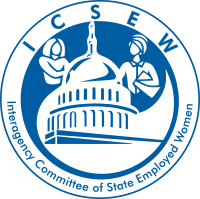Closing the Digital Equity Divide

by Deirdre Bissonnette, Washington Department of Fish & Wildlife
The COVID-19 pandemic caused a digital revolution in the way many people work. A huge portion of what we did in person for our jobs suddenly had to be migrated online. Digital technology makes teleworking possible. However, the pandemic exacerbated inequities in digital access, especially for those living in poverty and rural communities.
With the passage of HB 1723 during the 2022 legislative session, Washington can look forward to a broader reaching and more comprehensive network of internet access throughout the state.
Advocates for the new legislation say this work has been a long time coming, but was elevated with the onset of the pandemic, and the bandwidth issues that presented, especially for rural communities. As a significant portion of the workforce in Washington State was sent home to work remotely during the Covid 19 response, inequity in bandwidth in the home went from an inconvenience to significant hurdle for many Washingtonians. Families competed for online bandwidth. Adults and parents needed to be online for work. Meanwhile students needed the internet to attend school remotely.
For a portion of Washington residents, especially those living in poverty and in rural communities upgrading service wasn’t an option. For many, internet wasn’t readily available in their communities, nor was it affordable. Forty-five percent of Washingtonians have no internet access or only have access to download speeds of less than 10 megabits per second.
The bill, known as the ‘Digital Equity Act’, is intended to make digital technology accessible to all who live in Washington. It amends the responsibilities of the Governor’s Statewide Broadband Office that was established in 2021. The office serves as the central broadband planning body for Washington, paying special attention to coordinating outreach in hard-to-reach and low-income communities. The office administers a number of new grant programs established under the banner of digital equity. These grant programs serve communities as they plan and implement their own digital equity programs.
For funding, the Broadband Office will look first to federal dollars – the Infrastructure Investment and Jobs Act included $2.75 billion to cover Digital Equity work nationwide.
Additionally, the Washington Digital Equity Forum was established under the legislation to develop recommendations to advance digital connectivity in Washington state. Membership to the forum will prioritize those who represent Federally recognized tribes, state agencies involved in digital equity, and underserved and historically disadvantaged communities.
The State Broadband Office falls within the Department of Commerce, their website for more information is here: https://www.commerce.wa.gov/building-infrastructure/washington-statewide-broadband-frequently-asked-questions-office/

